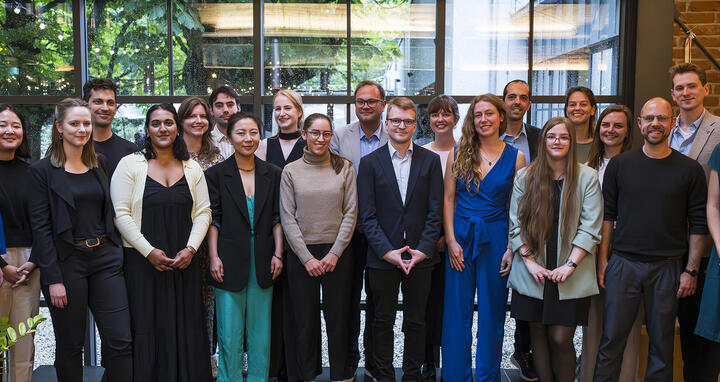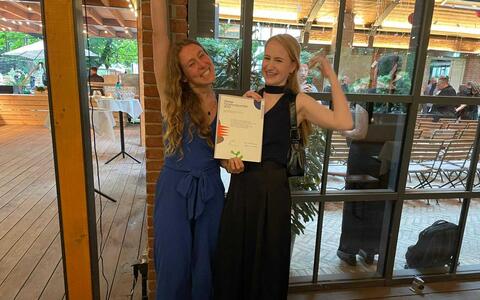Great science needs an inspiring environment
Open creative, supportive – none of this is a given. Die Junge Akademie and the Volkswagen Foundation created the prize to highlight the importance of inspiring and supportive research environment in academic and scientific performance, and to recognize the contributions of the scientists who shape them.
Sarah Gräßle and Viktoria Flore, two doctoral researchers in the lab of Professor Simon Haas, nominated our Single-Cell Focus Area. Out of approximately 300 applications, a jury shortlisted 24 teams. On 7 June 2025, ten were selected by random draw to receive the award, each accompanied by a prize of 10,000 euros.
“We are proud to be among the winners!” said Sarah Gräßle and Viktoria Flore. “The prize will be used to further strengthen our research environment and support team-building measures. We are honored to be part of this initiative.” Simon Haas was equally thrilled: “This is a testament to the inspiring environment we’ve been able to create together – thanks to the dedication of everyone involved in the single-cell focus area, the leadership behind it, as well as the institutional support that truly values interdisciplinary collaboration.”
Technologies, colleagues, collaboration
The Single-Cell Focus Area is a joint effort of the Max Delbrück Center, Berlin Institute of Health at Charité (BIH), and Charité – Universitätsmedizin Berlin. Four junior research groups use single-cell technologies to answer clinical questions. Their labs are located at the Berlin Institute for Medical Systems Biology of the Max Delbrück Center (MDC-BIMSB), where they have access to the latest technologies and network with excellent systems biologists. They also collaborate closely with a clinician at Charité, helping to develop single-cell technologies for real-world applications.
“Working across borders really is the future,” said Professor Nikolaus Rajewsky, director of the Berlin Institute for Medical Systems Biology of the Max Delbrück Center (MDC-BIMSB) and – together with Professor Angelika Eggert – architect of the Single-Cell Focus Area.
And Professor Maike Sander, Scientific Director of the Max Delbrück Center added: “The nomination of the Focus Area by two doctoral researchers speaks volumes about the strength of this community. It underscores how thematically aligned collaborative ecosystems can accelerate progress toward common objectives.”






